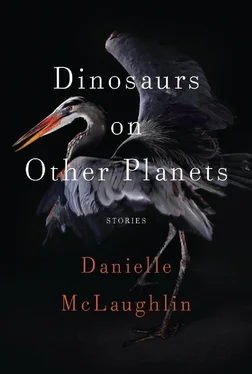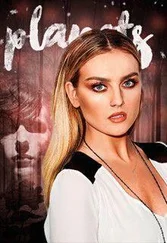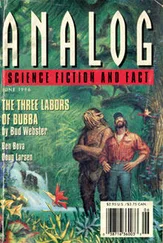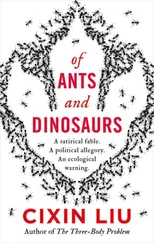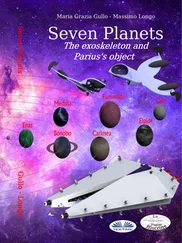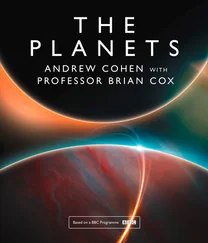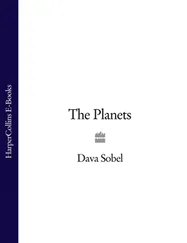“If I had money I’d go to Argentina,” Marcus said. “A man from our town did that. You can get a thousand acres in Patagonia for the price of a hundred here. I’d never come back.”
Lou Anne muttered something under her breath. She swept the last of the clutter from the piano onto the floor and raised the lid. I returned to the table. I didn’t know enough to say whether her playing was any good; the piano was likely out of tune, and this may have been the reason for the brutish, slightly mutinous, notes. I did know that she couldn’t sing: She struggled through a Bonnie Tyler song and a number of others I didn’t recognize that were also beyond her capabilities. And then she stopped. She stood up without looking at either Marcus or me and carefully closed the lid before leaving the room. I heard her crossing the hall and going into the kitchen, and from there the footsteps fading as she went through to her bedroom.
Marcus sipped his whiskey and stared at me, and I stared back. A lamp on a table beside his armchair was angled toward his face, and with his dark hair and beard, his dark eyes, he looked like a figure from a Baroque painting, a Caravaggio Christ, luminous and reproachful. I had prepared what I’d say if he said anything more about hitting Cassie. He got up and came over to where I sat, bringing his glass of whiskey with him. He leaned down and kissed me, and I felt the coarse tickle of his beard, tasted the whiskey off his tongue. He put his glass down and pulled me to my feet, kissing me again, a longer kiss this time, his hands moving through my hair, sliding down along my neck to rest on my shoulders. I thought I heard a noise from the hall, and pulled away. He looked at me, questioningly.
“Lou Anne…” I said, inclining my head toward the door, but he just smiled. “Ah, my little Louise,” he said. “Always such a worrier.” He went to kiss me again, but paused. “You’re called after her, aren’t you?” he said. “I’ve only just realized. You’re called after Lou Anne.” This seemed to amuse him; he smiled and shook his head, then took me by the hand and, wordlessly, led me out to the hall and upstairs to my bedroom.
He pushed me down onto the bed and, removing his jeans and shirt, lay down beside me. As he unbuttoned my blouse, I listened for sounds from Cassie’s room next door, or from Lou Anne’s downstairs. He unhooked my bra and, raising himself on one elbow, stared at me for a moment before tracing a finger in slow circles around one of my nipples. I lay perfectly still as his finger trailed lower over my ribs, stopping at the patch of bruised skin that had darkened now to shades of blue and mauve. He put his mouth to it and kissed it. “Poor Louise,” he said. “What was your mother thinking, sending you here?” His lips moved down along my stomach. He unbuttoned my jeans, tugged my knickers halfway down my thighs, and then I felt his mouth again, warm and wet, the busyness of his tongue. “Hush,” he said when, forgetting myself, I made a noise, and then he reached for his jacket from the floor and took a square of foil from an inside pocket.
Afterward he talked about things he hadn’t talked about before: his family — mostly his mother and younger sister, because his father was dead — who, it turned out, were living in Offaly, and who didn’t appear to be in any way rich, but who ran a small grocery shop and farmed forty acres of land left to his sister by a grandmother.
“When do you visit them?” I asked, because it occurred to me that there had never been a weekend when he hadn’t been at the house.
“I don’t,” he said.
I wondered how his mother allowed it. I had already made a visit home to Tuamgraney. “But they’re your family,” I said.
“What’s family, when you think about it?” he said. “It’s just something that happens to you; a bunch of people, not of your choosing, that you’re forced into relationships with. I believe we have the right to choose our own families.”
Your family was your family, I thought, and there was nothing you could do about it. I wanted to say this, but feared it might all have something to do with philosophy and then I would look foolish. I stroked the dark hair of his chest and stayed quiet.
“Do you know where I’d go if I could go anywhere I liked?” he said, and he began to talk again about Argentina. We had climbed under the bedclothes at this stage, and as he talked, his hand rested in the damp hollow between my legs, his fingers playing with me halfheartedly. I must have drifted off to sleep, because I woke sometime later to see him in the doorway, his profile briefly visible in the light from the landing as he pulled the door shut behind him.
—
SUNDAY MORNING, I FOUND Lou Anne and Marcus making sandwiches in the kitchen. Marcus looked up from slicing a block of cheese and said, “We’re going to the lake, if you’d like to come.”
“Why would she want to go to the lake?” Lou Anne said. “I wouldn’t go myself, only I promised Cassie. It’s madness, going this time of year — we’ll catch our death of cold.”
“It’s not cold,” Marcus said. He nodded to the window where a watery October sun was slanting through the blinds.
“I’d like to go,” I said, before Lou Anne could say anything more. I was grateful, joyous even. Marcus had paid me hardly any attention these past few days, even when I’d tried to humor him by making an effort with Cassie.
Lou Anne got a flask from a cupboard and filled it with boiling water. She began to add spoonfuls of instant coffee, counting them under her breath.
“Have you got a swimsuit?” Marcus said.
“It’s too damned cold for swimming,” Lou Anne said, putting the top on the flask. “Cassie will do her bit of paddling, we’ll eat our sandwiches, and we’ll come home.” She packed the flask into a navy holdall on the kitchen table.
I had a red bikini that I’d bought the year before during a shopping trip to Galway. It had journeyed from Galway to Tuamgraney to Dublin without ever being worn, or being seen by my mother. I went upstairs and changed into it, checked how it looked in the bathroom mirror. Good, I thought, it looked good, and I put my clothes back on over it and went downstairs.
I’d presumed that we would take a bus, but Lou Anne had arranged the loan of a car, a little red Ford Fiesta. She was driving, and Cassie was in the passenger seat, Marcus and I in the back. A couple of cassette tapes were scattered across the dash, and Lou Anne selected one that turned out to be Debussy and put it on. It was lavish, ambiguous music, and, as we proceeded down Drumcondra Road, the strangeness of the harmonies unsettled me, brought a feeling I was unable to identify as one thing or another. I was holding a tartan picnic rug on my lap, and Marcus slid his hand underneath, let it rest on my thigh. Lou Anne’s driving was erratic: She took corners too wide and too fast, went through a red light at a junction. The city was quiet that morning, mellow, the outlines of the trees softened by the scant yellowing leaves that still clung to their branches, and as we passed the cemetery an elderly man raised a hand in greeting, perhaps mistaking us for someone else.
We drove for an hour, maybe more, turning off the main road onto a narrower one, and farther on again, onto what was no more than a dirt track. Ahead of us was a lake, a dip scooped out of the surrounding farmland with a small woods at one end that stretched all the way down to the edge. Close to the shore, saplings had taken root in the lake bed, half-formed trees pushing up out of the water. When the dirt track petered out, we trundled downhill through a field. Lou Anne parked as close to the lake’s edge as she could, so close that I feared if the hand brake didn’t hold, the Fiesta might end up in the water.
Читать дальше
